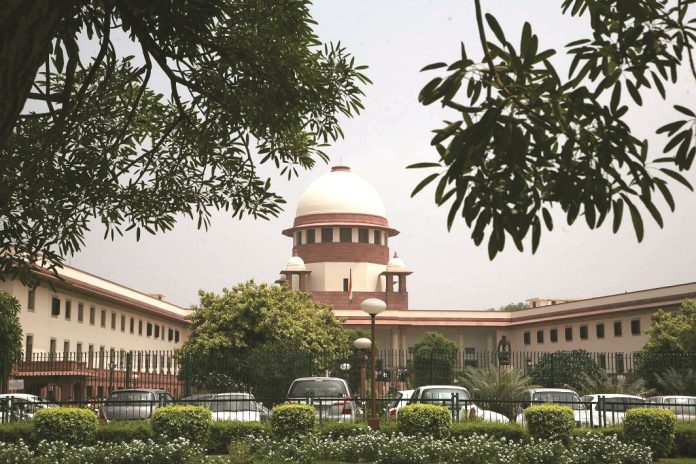The Supreme Court on Monday refused to stay the ongoing process of delimitation in the Assembly and Lok Sabha Constituencies being undertaken by the Election Commission of India.
The Bench of Chief Justice of India D.Y. Chandrachud, Justice J.B. Pardiwala and Justice Manoj Misra, however, agreed to hear the writ petitions filed by a group of non-BJP party leaders challenging the constitutional validity of Section 8A of the Representation of People’s Act.
The Bench issued notice on the writ petitions filed by leaders of 10 opposition parties of the country.
The petitioners further challenged the draft proposal published by the ECI in June for the delimitation of 126 Assembly and 14 Lok Sabha constituencies of Assam.
The Apex Court gave three weeks time to the Union of India and the ECI to file their replies and two weeks thereafter for rejoinder.
Ten opposition parties of the country, including the Congress, Raijor Dal, Assam Jatiya Parishad, CPI(M), CPI, TMC, NCP, RJD, and the Anchalik Gana Morcha had filed a petition in the Supreme Court against the ongoing delimitation process in Assam.
Filed by Advocate Fuzail Ahmad Ayyubi, the petition specifically challenged the methodology adopted by the Election Commission and its proposals, as notified on June 20.
The petitioners included Lurinjyoti Gogoi (Assam Jatiya Parishad), Debabrata Saikia (INC), Rokibul Hussain (INC), Akhil Gogoi (Raijor Dal), Manoranjan Talukdar (CPI(M)), Ghanakanta Chutia (Trinamool Congress), Munin Mahanta (CPI), Diganta Konwar (Anchalik Gana Morcha), Mahendra Bhuyan (Nationalist Congress Party), and Swarna Hazarika (Rashtriya Janata Dal).
The petition challenged the recent proposals of the Election Commission regarding the readjustment of 126 Assembly and 14 Lok Sabha constituencies in Assam.
It contended that different average assembly sizes for different districts and population density should not play a role in the delimitation process.
The plea pointed out that while the Constitution aimed at re-adjusting the constituencies to ensure equal population distribution, the Election Commission, while relying on the Census figures of 2001, has created three categories of districts and used different criteria for each category, potentially resulting in a deviation of up to 33 percent in population between the largest and smallest constituencies.
Furthermore, the petition challenges Section 8A of the Representation of People Act, 1950, under which the Election Commission exercises its power. The petitioners argue that this provision is arbitrary, opaque, and discriminatory against Assam and three other northeastern states.
They pointed out that delimitation exercises for the rest of the country have been conducted by a high-powered body headed by a retired Supreme Court Judge, and a similar commission was formed for Jammu & Kashmir.
It further cited the statements made by Assam Chief Minister Hemanta Biswa Sarma, alleging that the current delimitation exercise would benefit the BJP, while harming other opposition parties.
The petitioners alleged that such statements undermined confidence in the exercise and raised concerns that the Election Commission’s independence has been compromised by the state government.


